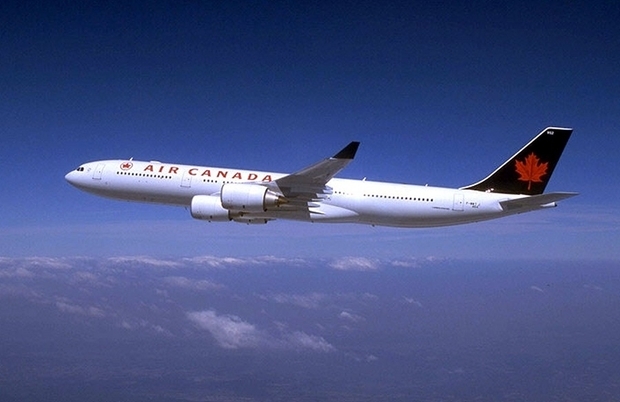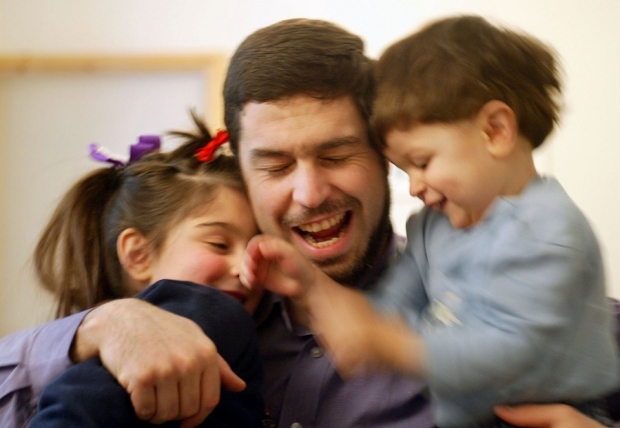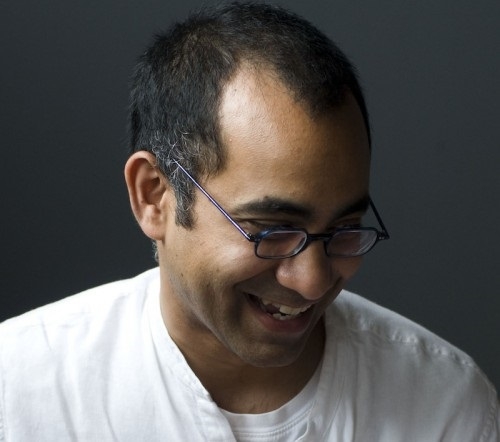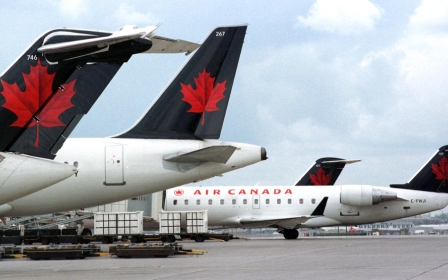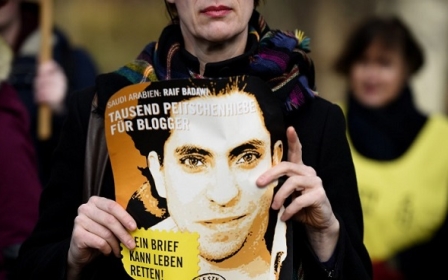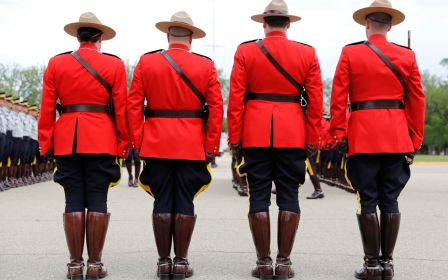Trapped on Canada's 'no-fly' list: 'It’s a stigmatising experience'
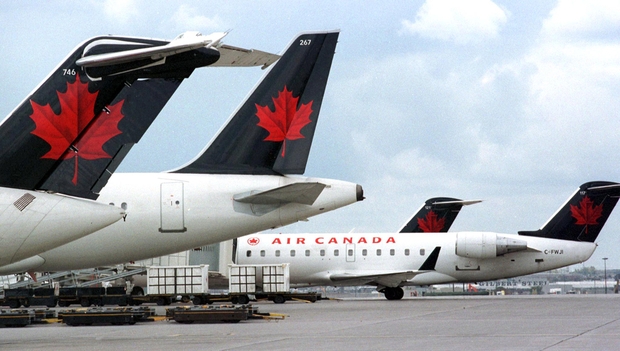
A recent study by two students at the University of Western Ontario (UWO) suggests that at least 100,000 Canadians may be on a so-called “no-fly list” that is part of Ottawa’s controversial Passenger Protect Programme.
Although the federal government will not disclose exactly how many people are on the no-fly list due to security reasons, critics point to a flawed system that does not use unique identifiers such as birthdates or passport numbers. This results in many “false positives,” where anyone with a similar name to someone deemed a threat can be flagged.
Children detained as 'security risks'
It also results in rather absurd situations where the likes of six-year-old Adam Ahmed, of Markham, Ontario, are flagged as “security risks” at airports around the world.
In fact, so many Canadian children face similar situations every time they fly that an ad hoc group called No Fly List Kids (NFLK), set up by concerned parents, has become a prominent advocacy group for victims of the seemingly arbitrary system. In March 2016, a spokesperson for Canada's ministry of public safety told MEE that ministry officials have advised airlines that additional security screening validation is not required for passengers under the age of 18.
Both Yusuf Ahmed and his roommate Rayyan Kamal are the two students behind the study, as well as members of the NFLK group.
Kamal says that the US has had a system in place since 2014, whereby so-called “false positives” can seek redress.
Yet in spite of many promises by the incumbent Liberal government, Canada does not have a redress system in place. While Public Safety Canada did create the Passenger Protect Inquiries office in 2016, under mounting public pressure, none of the families in the NFLK have had their issues resolved to date, according to the NFLK website.
Kamal explains that he and Ahmed began their study by taking 50 names they knew were on the list that were accessed via public domain articles on line, and then matched them against the free 411.ca public directory.
“To be conservative and fair in our study, we only used direct matches," says Kamal, “so David Smith, for instance, rather than D Smith.”
On average, he says, “there were 50 hits per name, so 50 people on average shared the same name”.
Extrapolating from then minister of transportation Lawrence Canon’s 2007 statement that there were between 500 to 2,000 people on the list, they arrived at the most conservative number possible, explains Kamal.
By multiplying the number of average hits per name (50) by 2,000, the estimated number of 100,000 was reached.
“But it’s reasonable to believe,” notes Kamal, “that the list has grown significantly in the last decade.”
Detained and interrogated at age six
Yusuf Ahmed, who was born and raised in Canada, remembers the first time he was singled out for questioning while travelling with his family as they were returning from a trip to Salt Lake city in the US. At the time, he was six years old.
It’s an awful feeling to have strangers staring at you wondering if you’re some kind of potential threat every time you travel
- Yusuf Ahmed, university student
“We were coming back from vacation and we were pulled aside and questioned – me and my two brothers. I remember they asked me for the name of my local library. I was terrified because I didn’t know the answer. I had no idea what would happen or where they would take us if something went wrong.”
“It’s a stigmatising experience," says Ahmed. "It’s an awful feeling to have strangers staring at you wondering if you’re some kind of potential threat every time you travel.”
Ahmed, like many others, only learned he was flagged by the disclosure of sympathetic airline staff. According to Ahmed, he has endured endless hassles, delays and interrogations, but has to date not actually been prevented from boarding a plane.
He is also very concerned for his safety when he flies abroad. “The no-fly list information is shared with other nations that might not have the same values as Canada – which means that I could face potential detainment, arrest, incarceration and torture.”
There are also the cases of three other Canadian Muslim men: Abdullah Almalki, Ahmad El Maati and Muayyed Nureddin.
“All of them are Canadian men detained and tortured by foreign governments based on flawed, inaccurate and false information [from Canadian officials]," Ahmed says.
Kamal, who is a Canadian born to Bangladeshi parents, says that there needs to be balance between “Canadian values” such as the charter of rights and freedoms and national security concerns.
“When the government has predominantly Arab and brown names on the no-fly list, that validates the racist stigma,” he contends.
No faith in the government
Shahid Mahmood, an internationally syndicated Pakistani-Canadian political cartoonist and architect whose name has been on the no-fly list since at least 2004, has little faith in the Canadian government, which he says has done nothing to help him during his 13-year ordeal.
His hunch is that his work as a political cartoonist – drawing the likes of Uncle Sam giving birth to Osama Bin Laden – drew the attention of the US no-fly list in the aftermath of 9/11.
Mahmood says Canada has incorporated the US list into its own. In February 2016, CBC news reported that public safety minister Ralph Goodale said in a letter to the representatives of dozens of families whose children were delayed at airports that delays can occur for those who have the same name as a person on Canada's list, or "another security-related list such as the US no-fly list".
When the government has predominantly Arab and brown names on the no-fly list, that validates the racist stigma
- Rayyan Kamal, university student
“It’s been very stressful,” Mahmood relates. “Every time I fly, I don’t know if I will be taken aside for additional questioning or not.”
As well as missing out on countless weddings, family gatherings and work opportunities, he says he also lost a job because of his no-fly list status.
“When my story was getting a lot of air time and media in 2005, I was pulled aside by my employers (an architecture firm in Toronto) at the time and told: ‘We can’t have f***ing Arabs like you talking on national television like this.’ I handed in my resignation that week," he recounts.
Mahmood did get a settlement from Air Canada in 2010, putting a stop to a human rights tribunal probe he initiated that was to examine his claim that the airline racially profiled him.
Even after the settlement, the travails of Mahmood - whose experiences were documented in a short 2011 film called Listed - continued. In 2012, he was detained at Santiago international airport and questioned for 90 minutes by Interpol, which he says indicates that “I’m still on a US no-fly list”.
While he filed for redress from the US department of homeland security in October 2014 and only recently got a response, offering the option of travelling to the US in possession of a “redress number” that he says he is “reluctant to test,” Mahmood contends that “Canadian citizens cannot expect any help from their government”.
“The main issue is that Canada, if anything, has been more backward in dealing with issues related to security than the US. It was only in May 2014 that Steven Blaney (then Conservative minister of public safety) told me Canada could not help me and that my answers could only be sought in the US.”
According to Mahmood, while the redress system in the US remains complicated, noting that the number does not confirm or not if an individual is on the list, “the larger issue is why Canada can’t stand up for its citizens abroad”.
While Mahmood is supportive of NFLK, he finds the recent increased public attention somewhat disingenuous.
“Right now the torch is with young kids who are flagged, but it’s purely an optics issue. Our politicians fear children as they make better poster-kids for advocates. People like me are ignored as ‘Who cares about a brown, ethnic male between the age of 20 and 50?'"
'We can’t have f***ing Arabs like you talking on national television like this'
Indeed Ahmed, who recently turned 19, and 20-year-old Rayaan Kamal, also share Mahmood’s concerns.
“As kids become adults their presumed innocence is less obvious,” says Kamal. “They don’t look quite as cute.”
Fixing the system
“The Canadian government can eliminate 99 percent of the ‘false positives’ by simply using birth dates,” says Ahmed. “They have the info available. Why don’t they use it?”
In June 2017, the government proposed Bill-C59, which includes amendments to legislation such as a redress mechanism for affected travellers. In November 2016, Goodale announced that a redress system modelled on the American system could be in place as early as spring 2018.
Yet Ahmed speculates that this could take up to five years to implement.
Every time I fly, I don’t know if I will be taken aside for additional questioning or not
-Shahid Mahmood, political cartoonist
“Why can’t they just hire a third party to fix the system?” he adds.
According to a statement from Scott Bardsley - spokesman for public safety minister Ralph Goodale - that was sent to MEE, Goodale addressed the UWO study on 12 December 2017 saying:
“The research reports today are highly speculative, but the point is simply this. We are dealing with a flawed system that was implemented about 10 years ago by the previous government, and we are trying very hard to fix that system. It requires new legislation, new regulations, and a new computer system built from the ground up. The first step, the legal authority, is contained in Bill-C59, and I am sure that all members of parliament will want to vote for this legislation.”
Bardsley adds in the statement that false positives can usually delay a person's travels "from 10-15 minutes".
"The most common solution is for the individual to join an airline’s loyalty programme. This associates her or his name with additional identifiers within the airline’s systems which helps distinguish them from listed individuals with similar names," he continues.
Kamal explains that they were told that funding was an issue as well.
“We talked to the finance committee of the House of Commons of Canada and our goal is to get the issue into the 2018 federal budget," he says.
It’s not only Canadians that are affected by the Passenger Protect Programme. In March 2016, Paul-Emile Dupret, a Belgian human rights lawyer who works for the European Parliament and was conducting a campaign opposing the transfers of European travellers' personal information to American authorities, was prohibited from flying from Paris to Montreal with an official delegation of the European Parliament that focuses on EU-Canada trade negotiations. Although the flight was not even crossing US airspace, the explanation given by the airline was that Mr Dupret's name is on the US no-fly list.
'Preposterous regime'
For Vancouver-based independent researcher Alnoor Gova, a scholar researching the nexus of hate crimes, Islamophobia and national security laws for over a decade in Canada, the whole idea of the no-fly list is absurd and troubling.
Why is it that they are deemed too dangerous to fly but not too dangerous to shop at a Canadian Tire or Tim Hortons?
- Alnoor Gova, researcher
“The person is told by an airline official that they cannot get a boarding pass and that's it. They can't get on a plane. This supposed dangerous individual is now left at the airport with their luggage, no security is called, and no further investigation is pursued into the individual that I know of - ostensibly they are free to go," says Gova, who helped create the website antiterror.ca with the goal of repealing the controversial Anti-terrorism Act of 2015.
"Why is it that they are deemed too dangerous to fly but not too dangerous to shop at a Canadian Tire or Tim Hortons?”
Fear of terrorism, as noted on Gova’s website, "enables the government to implement policies and legislation that allow for mass surveillance, violations of the Charter and basic human rights".
The idea of maintaining a "secret list" seemingly arbitrarily applied, says Ahmed, is one that begs the question, “to what degree are we as Canadians willing to have our rights violated in the name of national security?”
New MEE newsletter: Jerusalem Dispatch
Sign up to get the latest insights and analysis on Israel-Palestine, alongside Turkey Unpacked and other MEE newsletters
Middle East Eye delivers independent and unrivalled coverage and analysis of the Middle East, North Africa and beyond. To learn more about republishing this content and the associated fees, please fill out this form. More about MEE can be found here.


